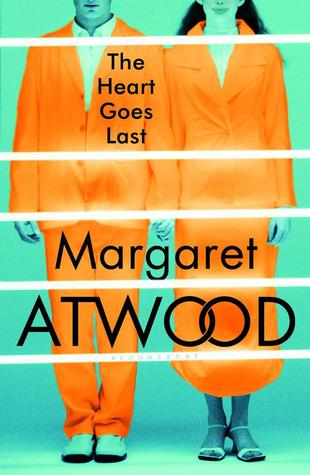
Rating: 3.5/5 stars
Review: Margaret Atwood’s new dystopian novel The Heart Goes Last, while initially well-designed, fails to make a lasting impression.
The book follows Stan and Charmaine, a young couple living in the midst of an economic crash. Desperate for safety and normality, they sign up for the Positron Project, a clean, structured town where inhabitants live and labor in the gender-separated prison of Positron for a month and stay in the fifties-esque town of Consilience the next. Atwood manages to patch together a world like that of 1984 and The Stepford Wives mixed with her own developments. When both Stan and Charmaine become involved with their “Alternates,” the people who live in their home the months the couple is in prison, the story becomes more complicated.
The novel focuses on the relationship between Stan and Charmaine, which becomes increasingly tangled as the plot progresses. Atwood does a fantastic job adding depth to the couple by revealing their candid, often disturbing thoughts. Even more hauntingly, the dystopian world Atwood describes so well could easily fit into the next few years.
Though unsettling, the book is, at least, an enjoyable read. Stan’s prison side job as chicken pimp, a woman romantically attached to a teddy bear, and the growing absurdity of the main couple’s situation prompt a few smiles.
Atwood’s voice is also impressive. Some of her lines provoke deep thought while others aim to entertain, and she writes so smoothly there is never a clash between the two. She is even able to catch me off guard with a couple plot twists that stomp my initial predictions away.
In the last quarter of the book, though, the story seems to get out of Atwood’s hands. The stitches that pull the novel together become more obvious and start to fray. The plot gradually loses its realism, pieces don’t match up quite right, and secondary characters lose their depth. Worse yet, the dystopian clichés that Atwood initially appears to use jokingly become more serious and groan-worthy. Near the novel’s end, the story’s humor fades and takes on a more moralistic tone.
Atwood crams the last few chapters with events meant to drive the main themes home, but, though interesting, these events seem too much like an afterthought. The final chapters don’t drive the main themes home as much as they pull these themes to the surface. By the end, Atwood bares the story’s already thinly veiled meaning to readers as though they are incapable of jumping to interpretations themselves.
Still, the central meaning is designed better than similar stories, and it is an enjoyable read.
The problem with The Heart Goes Last is not a matter of enjoyment, though. The problem is that the heart of the novel goes before the Atwood is finished, but she keeps working at it anyway, hoping a frenzy of shocks will keep it alive until the end. In truth, the story flat-lines before Atwood is willing to wrap it up.
Recommendation: Fans of Atwood might be able to overlook these issues and appreciate the author’s intent. I think fans of The Stepford Wives and more mature fans of The Giver may also value this novel. It is a likable read for a general audience, but those unable to enjoy books featuring extramarital affairs, customizable prostitute robots, and “Big Brother” settlements should stay away.
Thanks to NetGalley for sending me an ARC of this book–even if I didn’t review it until it was published.
